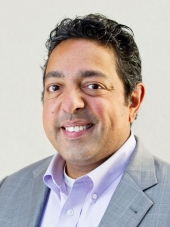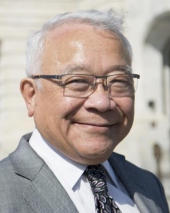
UC San Francisco is helping to launch a landmark effort by the National Institutes of Health to engage 1 million or more U.S. participants in research aimed at preventing and treating disease based on individual differences in lifestyle, environment and genetics.

Four University of California medical centers that are part of UC Health – UCSF, UC San Diego, UC Irvine and UC Davis – have joined with Cedars-Sinai Medical Center, San Diego Blood Bank, and the University of Southern California to form the California Precision Medicine Consortium. They are the first regional medical center enrollment sites announced in California to be part of the national network of health care provider organizations (HPOs) that will implement the Precision Medicine Initiative (PMI) Cohort Program, joining awardees announced earlier this year.
“California has been unique as a state in investing in precision medicine, so I am really pleased that California residents will soon be able to join the NIH PMI Cohort Program through their health care provider organizations,” said Atul Butte, MD, PhD, executive director of clinical informatics at UC Health. A professor of pediatrics, bioengineering and therapeutic sciences, as well as epidemiology and biostatistics at UCSF, Butte will be a co-principal investigator of the new NIH grant. He is also principal investigator on the state-supported California Initiative to Advance Precision Medicine.
Step Toward Making Precision Medicine a Reality
Participants in the PMI Cohort Program will be invited to contribute a range of data about themselves by completing questionnaires, granting access to their electronic health records, providing blood and urine samples, undergoing physical evaluations and sharing real-time information via smartphones or wearable devices. The privacy and security of the data will be safeguarded.

“This is an important step toward making precision medicine a reality, and we are pleased to participate in this national effort through the California Precision Medicine Consortium,” said Keith Yamamoto, PhD, director of UCSF precision medicine and vice chancellor for science policy and strategy at UCSF. “Its success will depend on community engagement, including both patients and healthy people who become convinced that their contributions will benefit the health and well-being of themselves, their children and their grandchildren. California’s rich diversity will strengthen the national effort.”